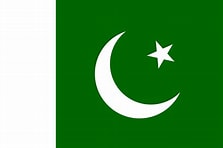India, at this moment in time, is perhaps more involved in global multilateralism than it has been at any point in its history. Our Presidency of the G20 this year, in the lead up to the summit in New Delhi this September, is of course, the headline on this front. But beyond this, India also took over the rotating presidency of the Shanghai Cooperation Organization last September, while also serving out the final months of its two-year momentous stint on the UN Security Council.
Yet while multilateral organisations remain essential, the foundations on which they were built are shifting given a greater adherence to unilateralism by the world’s great powers. The most obvious change is, of course, the transformation of the global security landscape due to the war in Ukraine.
Yet alongside this, the dynamics of global trade and economic policy have also radically changed. The age of relentless integration, underpinned by an international commitment to free trade, seems now to be over. Globalisation is under threat on two fronts.
From a geopolitical perspective, countries around the world are leaning further towards self-reliance, as the Ukraine crisis underscores the perils of over-reliance in terms of energy and economic security. Likewise, the pandemic displayed the vulnerabilities of over-reliance of global supply chains on one country.
From an economic perspective, a new ‘green arms race’ – exacerbated by the so-called ‘Green Apartheid’of funding and technological disparities between the developed and developing worlds – is rapidly eroding the global free trade regime. As the world wakes up to the necessity of an accelerated energy transition, and to the economic opportunities that this will create, the rush to get ahead of the rest of the world has ushered in a new era of protectionism.
Joe Biden’s Inflation Reduction Act – the enormous package of subsidies for clean energy industries within the US – is the latest and greatest example of this. The US, once the champion of trade liberalisation, have seemingly turned a corner, and have done so in such a way that has set even its strongest allies on edge. The EU, for instance, is gearing up to loosen its own ‘state aid’ rules as a response to the subsidy-driven approaches that will fuel the economic futures of the US and China.
These pressures have pushed the international order into a new era of self-interest. At the very same time, however, we are faced with some of globalisation’s more irrepressible forces. Rapid technological development means that, through the internet and through increased mobility and travel, our societies and cultures are more connected than ever.
At the same time, Covid-19, Ukraine, and their economic fallouts, have shown us that in today’s world, every crisis has global dimensions. In this context, diplomacy and international co-operation remain more important than ever. The climate crisis is the most urgent example of this.
How, then, can India deal with this contradiction? How can it pragmatically pursue its national interests, while also continuing to strengthen vital international partnerships?
The answer it seems that India has reached, which the rest of the world is also recognising, is a ‘multi-networked’ approach: which aims at broad partnerships with narrowed scopes. Indian Foreign Minister Dr. SJaishankar has referred to these as a ‘multi-alignment’ approach with national interest and global good at its core, followed through a policy of ‘Vasudhaiv Kutumbakam’ – the World is one family.
By identifying priority issues – whether they be energy security, technological development, the green transition, the fight against terror, agricultural modernisation,or for that matter, the voice of the Global South – and reaching mutually beneficial agreements with a carefully selected group of likeminded partners, India is leapfrogging the obstacles that complicate multilateral relationships. Through greater focus, these so-called ‘mini-lateral’ partnerships can deliver efficient and effective impact. These also fit well into India’s exercise of strategic autonomy within the international discourse.
The prototype in this regard is the I2U2 partnership with Israel, the United States, and the United Arab Emirates. This partnership transcends the competing interests that these four major nations might have in the name of pragmatism and progress. It focuses, specifically, on mutually beneficial projects, and has delivered significant results already for India.
In particular, it has catalysed a strengthening of our ties with the UAE, which is now a key strategic partner. The $2 billion investment in food parks across our country, as well as the $330m, 300MW hybrid renewable project in Gujarat; represent major diplomatic and economic wins for India.
The value added by the US and Israel,who will contribute their expertise to the projects as well as exploring complementary investment projects further down the line, is significant, showing the value of these expanded formats beyond bilateral arrangements. This is not to say, of course, that the UAE and India cannot work on major initiatives bilaterally (the UAE is our third largest trading partner and has committed to investing $75 billion in our economy across various sectors).India and UAE have signed the first ever Comprehensive Economic partnership Agreement (CEPA) that has become a template in the region.
There are also hopes that the I2U2 could also catalyse the signing of an FTA with Israel, which is a priority. In fact, all three of the UAE, Israel and USA are crucial strategic partners for India.This mutually beneficial multi-network approach enriches, rather than holding back, bilateralism and multilateralism.
As we move into a new geopolitical era, these innovative, ‘multi-networked’ partnerships offer a new model for diplomacy which will advance India’s interests in the long run. Only time will tell, but in the year to come, it seems likely that these innovative, less traditional formats will continue to evolve, and make up a more significant part of the foreign policies of not just India, but the rest of the world.
Source:
https://www.financialexpress.com/defence/the-case-for-a-multi-networked-indian-foreign-policy-in-a-non-aligned-world/2970919/








